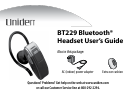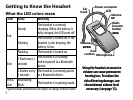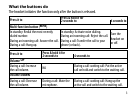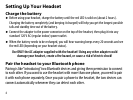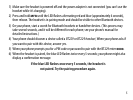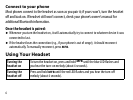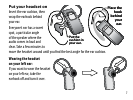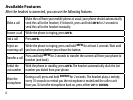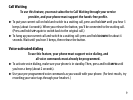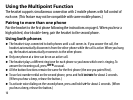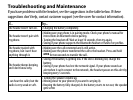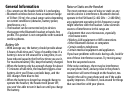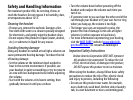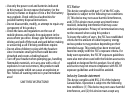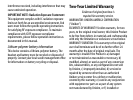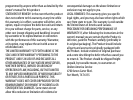Use only the power cord and batteries indicated
in this manual. Do not expose the battery (or the
device) to ames or dispose of it in a re: the battery
may explode. Check with local authorities for
possible battery disposal instructions.
Do not disassemble, modify, or attempt to repair any
component of this product.
Check the laws and regulations on the use of
mobile phones and hands-free equipment in the
areas where you drive. Always give full attention to
driving and pull o the road and park before making
or answering a call if driving conditions require.
Do not allow children to play with the headset:
since it contains small parts that could become
detached and create a choking hazard.
Turn o your headset when pumping gas, handling
ammable materials, or in any area with a risk of
explosion. In rare occurrences, this product could
generate sparks which can cause an explosion or
re. Follow all warning notices in your immediate
area!
SAVE THESE INSTRUCTIONS!
•
•
•
•
•
FCC Notice
This device complies with part 15 of the FCC rules.
Operation is subject to the following two conditions:
(1) This device may not cause harmful interference,
and (2) This device must accept any interference
received, including interference that may cause
undesired operation. Privacy of communications may
not be ensured when using this product.
To insure the safety of users, the FCC has established
criteria for the amount of radio frequency energy
various products may produce depending on their
intended usage. This product has been tested and
found to comply with the FCC’s exposure criteria. For
body worn operation, the FCC RF exposure guidelines
were also met when used with the Uniden accessories
supplied or designed for this product. Use of other
accessories may not ensure compliance with FCC RF
exposure guidelines and should be avoided.
Industry Canada statement
This device complies with RSS-210 of the Industry
Canada Rules. Operation is subject to the following
two conditions: (1) This device may not cause harmful
interference, and (2) this device must accept any



